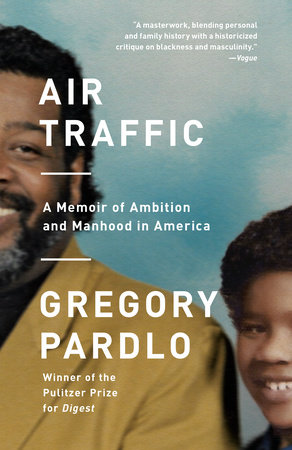The Transformative Power of Reading Poetry as a Child
by Gregory Pardlo
When I moved to New York for graduate school, I volunteered (okay, it was a requirement of my fellowship) to work as a teaching assistant with the Teachers & Writers Collaborative. Teachers & Writers is an organization that arranges for working poets and writers to visit, conduct writing exercises, and share with students their love of writing in classrooms across the city. It was my first time working in a classroom. I first had to be apprenticed to an experienced poet before getting assigned to visit classes on my own. Feeling like a country mouse in the big city, I welcomed all the mentoring I could get.
I grew up in South Jersey in a suburb of Philadelphia. My mother was a commercial artist, and my father was a labor activist. Until I was six or seven my mother and I read Aesop’s Fables and Robert Louis Stevens’s A Child’s Garden of Verses together every night before bed. On the old country roads near our house, whenever we drove over a dip and the car seemed slightly, momentarily airborne, I’d feel a tickling buzz as if I was lightheaded, but in my stomach. I remember having that same physical reaction to reading poems and fables with my mom. That feeling came in the flash that showed me a world of understanding that the words on the page could not contain. I understood, too, that the poet wanted me to see that other world, and not just the world literally described on the page. It was all the more transformative to know that I wasn’t alone in what I saw — my mother saw it, too.
Tucked away in my father’s record collection was an odd record by a spoken word group from the late ’60s and early ’70s called The Last Poets. Judging from some of the language and themes on that record, I knew it wasn’t meant for my young ears. There were other reasons it was like nothing I had ever heard. The Last Poets weren’t following what I thought were the rules of either poetry or music. These were the kinds of scofflaws my 15-year-old imagination craved. It seemed fate was saying, “Ta-da!” when the coordinators at Teachers & Writers assigned me to work with Abiodun Oyewole, a founding member of The Last Poets. Abiodun had been a teaching poet in the schools for years and was beloved in classrooms throughout Harlem and the Bronx. Children in the upper grades remembered him fondly from his visits when they were younger. They chanted his signature rap along with him by heart, emphasizing the rhyme: “I want to be / all I can be…” I found it energizing to know the community had this secret bond in poetry. I was overcome with enthusiasm as I followed Abiodun from school to school like an urban Sancho Panza.
My job was to help students through writing exercises that were intended to make writing fun. “There are no rules!” I told the kids gleefully. One exercise in particular focused on metaphor and simile. We were in a second grade classroom, and Abiodun wrote the prompt on the board: “The subway is a _____.” We asked the children to fill in the blank. They set to work scribbling and giggling. I walked around the room encouraging the kids and congratulating them for imaginative metaphors like “the subway is a dragon” and “the subway is a waterfall” when I noticed one little girl hadn’t written a thing. I reminded her that she could write anything she could imagine. “How about a giant caterpillar,” I suggested.
“But it isn’t a giant caterpillar,” she said. “That would be lying.” She had her ethical boundaries, which I respected, but I found myself tearing up on my way home that day. Poetry isn’t simply wordsmithing. It isn’t just pretty words on a page. Poetry leads us beyond language, beyond the literal. It shows us that our minds can imagine so much more than words can convey. It makes us lightheaded in the belly and pulls open the curtains on new worlds of understanding. “Ta-da,” says the poem. Once a child knows that power, she can find poetry everywhere she looks. She can tell the difference between language that is meant to cage the mind and language meant to free it. I want every child to have that power. That’s the world I want to live in, and, in a sense, this is the cause I was meant to champion, however quixotic it may sometimes seem.
Learn more about Pulitzer Prize winner Gregory Pardlo’s childhood and life in his memoir, Air Traffic: A Memoir of Ambition and Manhood in America.
-
By the Author

